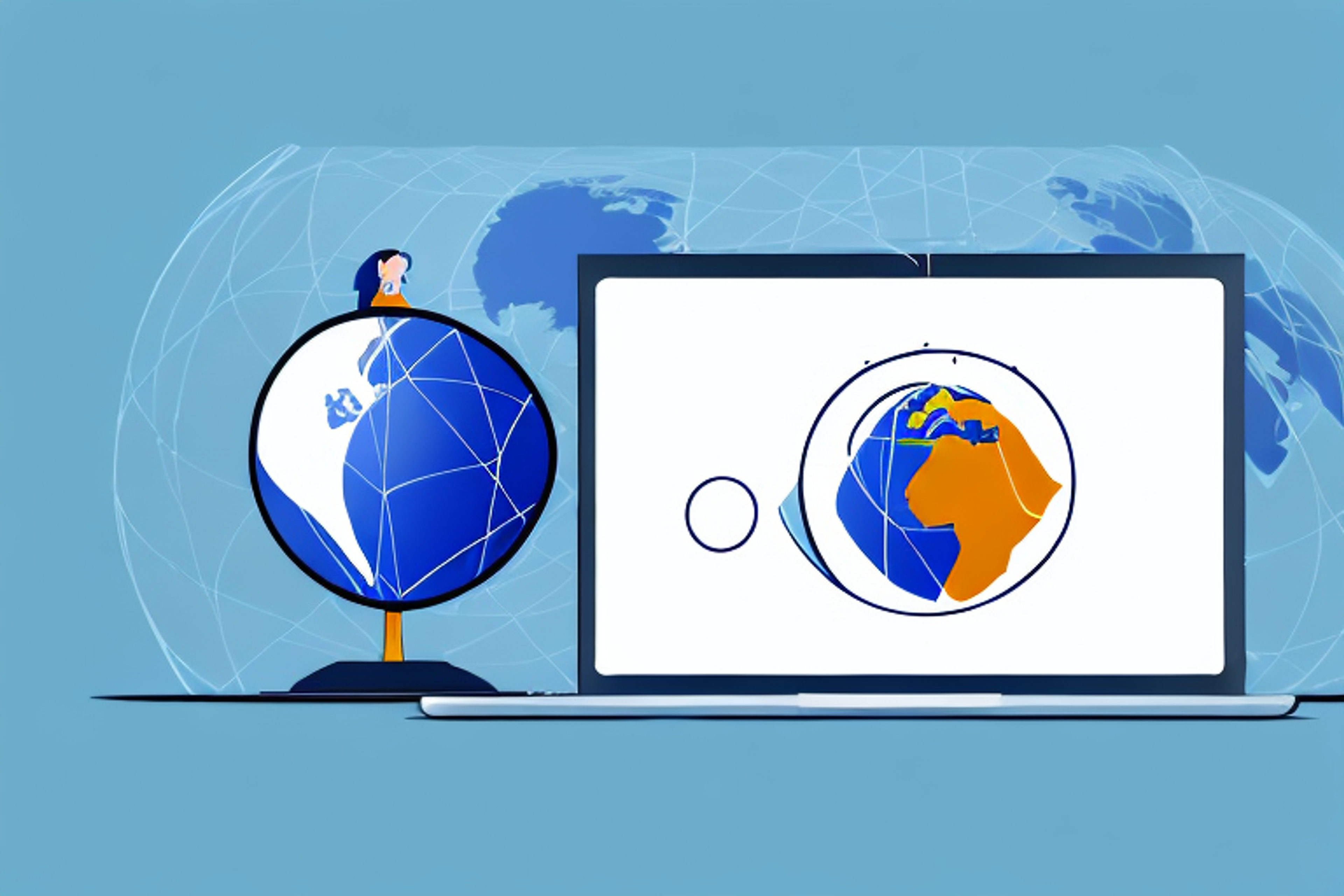How to Become a Business Development Consultant
Learn the essential steps to becoming a successful business development consultant with our comprehensive guide.
Posted April 10, 2025

Table of Contents
Are you interested in becoming a business development consultant? If you have a passion for problem-solving, marketing, and building relationships, this may be the career for you. In this article, we will explore the role of a business development consultant and the skills required to excel in this field, as well as tips for starting and growing your own consultancy business.
Understanding the Role of a Business Development Consultant
A business development consultant's main goal is to help clients grow their business through strategic planning and effective marketing. They are responsible for identifying potential clients and target markets, conducting market research, and creating marketing strategies that will attract and retain customers.
Additionally, business development consultants must have strong financial management and planning skills to help clients achieve their financial goals. This can include negotiation of deals and contracts, as well as ongoing support in managing multiple projects and prioritizing tasks.
Moreover, business development consultants also play a crucial role in identifying new business opportunities for their clients. They keep a close eye on industry trends, competitor activities, and emerging technologies to help clients stay ahead of the curve. By providing valuable insights and recommendations, business development consultants can help their clients make informed decisions and take advantage of new opportunities.
Developing Skills Required for Business Development Consultancy
To become a successful business development consultant, there are a few key skills that you will need to develop:
Additionally, it is important for business development consultants to have a strong understanding of the industry they are working in. This includes staying up-to-date with industry trends, regulations, and best practices. Keeping a pulse on the industry can help consultants provide valuable insights and recommendations to their clients.
Building a Strong Professional Network for Business Development Consulting
Networking is critical to becoming a successful business development consultant. Building relationships with other professionals in your industry can help you find new clients, gain access to new resources, and stay up-to-date on industry trends and best practices.
You can build your professional network by attending industry events and conferences, joining industry-related groups and organizations, and connecting with other professionals on social media platforms like LinkedIn.
Another effective way to build your professional network is by offering your services as a guest speaker or panelist at industry events. This not only allows you to showcase your expertise and knowledge, but also provides an opportunity to connect with other professionals in your field.
Identifying Potential Clients and Target Markets as a Consultant
Once you have developed a strong professional network, you will need to identify potential clients and target markets for your consultancy business. This will require conducting extensive market research to identify customer needs and preferences, as well as analyzing your competition to determine your unique selling point.
You can use a variety of tools and techniques to conduct market research, including surveys, focus groups, and data analysis. The goal is to gather as much information as possible about your potential customers, including their demographics, interests, and purchasing habits.
It is important to note that identifying your target market is not a one-time task. As your business grows and evolves, so too may your target market. It is important to regularly reassess and adjust your target market to ensure that you are effectively reaching and serving your ideal customers.
Conducting Market Research for Effective Business Development Consulting
After you have identified your target market and potential clients, you will need to create effective marketing strategies to attract and retain customers. This will require a deep understanding of your clients' needs and how your services can meet those needs.
Some effective marketing strategies for business development consultancy may include creating a strong brand identity, developing effective content marketing campaigns, and using social media platforms to reach your target audience.
Another important aspect of conducting market research for effective business development consulting is analyzing your competition. Understanding your competitors' strengths and weaknesses can help you identify gaps in the market and differentiate your services from theirs. This can be done through competitor analysis, which involves researching their marketing strategies, pricing, and service offerings.
Additionally, it is important to regularly gather feedback from your clients to ensure that your services are meeting their needs and expectations. This can be done through surveys, focus groups, or one-on-one meetings. By listening to your clients' feedback, you can make necessary adjustments to your services and improve customer satisfaction.
Understanding Financial Management and Planning as a Consultant
As a business development consultant, you will need to have a good understanding of financial management and planning in order to help your clients achieve their financial goals. This can include creating and managing budgets, negotiating contracts and deals, and providing ongoing financial support and guidance.
You may also need to help your clients identify potential sources of funding, such as grants or loans, and create financial projections and forecasts to guide their decision-making.
Negotiating Deals and Contracts as a Business Development Consultant
As a business development consultant, you will also need to have strong negotiation skills in order to secure deals and contracts for your clients. This may involve negotiating with potential partners, vendors, or investors, as well as providing ongoing support in managing and executing these deals.
Effective negotiation requires a deep understanding of your client's needs and goals, as well as the ability to communicate clearly and persuasively. You may need to research and analyze market trends, competitor strategies, and industry regulations to develop a strong negotiating position. Additionally, you may need to collaborate with legal and financial experts to ensure that the terms of the deal or contract are favorable and legally sound.
Maintaining Client Relationships and Providing Ongoing Support
One of the most important skills for a business development consultant is the ability to maintain strong relationships with clients and provide ongoing support as needed. This may involve regular check-ins to ensure that goals are being met, providing advice and guidance on strategic planning, and helping clients adapt to changing market conditions.
Managing Multiple Projects and Prioritizing Tasks as a Consultant
As a business development consultant, you may be working on multiple projects at any given time. Therefore, it's important to have strong project management skills and the ability to prioritize tasks effectively.
You may need to create project schedules and timelines, delegate tasks to team members, and monitor progress to ensure that projects are completed on time and within budget.
Developing Your Brand and Reputation as a Business Development Consultant
Your reputation as a business development consultant is critical to your success. To build your brand and reputation, you may need to invest in marketing and advertising, create a strong online presence, and cultivate relationships with other professionals in your industry.
Additionally, you may need to continue your professional development through attending conferences and workshops, pursuing advanced degrees or certifications, and staying up-to-date on industry trends and best practices.
Tips for Finding New Clients and Expanding Your Consultancy Business
Finally, if you want to grow your business development consultancy, you will need to find new clients and expand your client base. Some effective strategies for finding new clients may include using social media platforms like LinkedIn to showcase your skills and expertise, creating targeted marketing campaigns, and attending industry events and conferences.
Additionally, you may want to consider offering a referral program to encourage your existing clients to refer new business to you. Finally, be sure to track your progress and measure the effectiveness of your marketing and client acquisition strategies so that you can continually refine and improve your approach.
Staying Up-to-Date with Industry Trends and Best Practices in Business Development Consulting
The field of business development consultancy is constantly evolving, and it's important to stay up-to-date on new trends, technologies, and best practices in order to remain competitive.
This may involve attending industry conferences and events, subscribing to industry publications and newsletters, and participating in online forums and discussions with other professionals in your field. By staying informed and continually refining your skills and knowledge, you can ensure that you remain a top-performing business development consultant.
Challenges Faced by Business Development Consultants and How to Overcome Them
As with any career, there are certain challenges that business development consultants may face. These challenges may include dealing with difficult clients, managing multiple projects simultaneously, or dealing with rapidly changing market conditions.
To overcome these challenges, it's important to have strong communication skills, be able to adapt quickly to changing circumstances, and be willing to seek out advice and support from other professionals in your industry.
Conclusion
Becoming a business development consultant can be a challenging but rewarding career path. By developing the skills required to excel in this field, building a strong professional network, and staying up-to-date on industry trends and best practices, you can create a thriving consultancy business that helps clients achieve their business goals.











